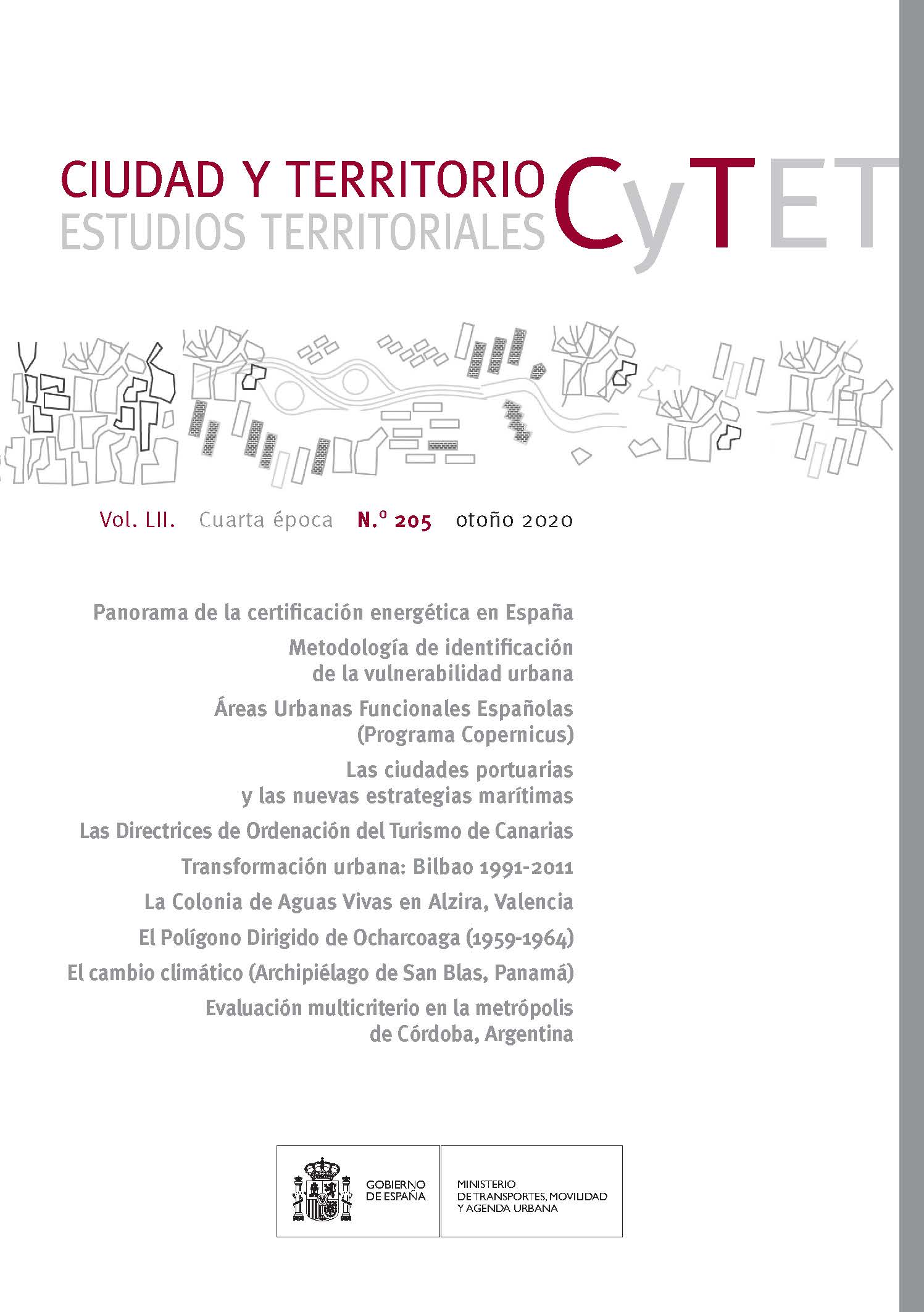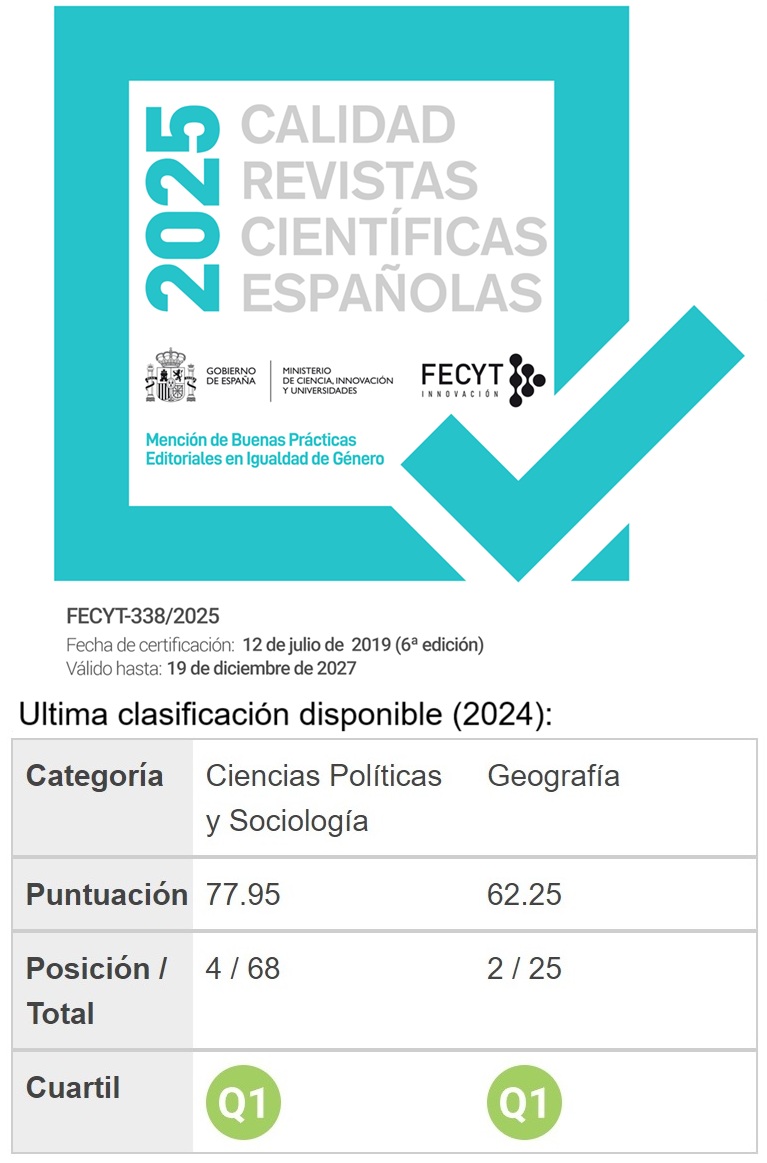La ciudad del cuarto de hora, ¿una solución sostenible para la ciudad postCOVID-19?
DOI:
https://doi.org/10.37230/CyTET.2020.205.13.1Resumen
Algunas de las grandes urbes de nuestro planeta han ido planteando su transformación en busca de una ciudad más humana y sostenible que permita afrontar, de manera inequívoca, los nuevos retos de la sociedad, superando el actual paradigma urbano donde el vehículo privado juega un papel esencial. A esta situación se sumará, inevitablemente, las consecuencias que el COVID-19 tendrá en la concepción de nuestra sociedad y con ello, en nuestras ciudades. Entre las apuestas más novedosas e interesantes que están presentes en el debate urbano de los últimos años se encuentra la idea del cronourbanismo y la ciudad del cuarto de hora que Anne Hidalgo, actual alcaldesa de París, incluía en el programa con el que ha sido reelegida.
Descargas
Publicado
Cómo citar
Número
Sección
Licencia
Derechos de autor 2020 Nuño Mardones-Fernández de Valderrama, José Luque-Valdivia, Izaskun Aseguinolaza-Braga

Esta obra está bajo una licencia internacional Creative Commons Atribución-NoComercial 4.0.
Sin perjuicio de lo dispuesto en la legislación vigente sobre Propiedad Intelectual, y conforme a la misma, el/la los/las autor/a/es/as que publiquen en CyTET cede/n a título gratuito, de modo no exclusivo y sin límite temporal al Ministerio de Transportes, Movilidad y Agenda Urbana los derechos para difundir, reproducir, comunicar y distribuir en cualquier formato actual o futuro, en papel o electrónico, la versión original o derivada de su obra bajo licencia de Creative Commons Reconocimiento-NoComercial-SinObraDerivada 4.0 Internacional (CC BY-NC-ND 4.0), así como para incluir o ceder a terceros la inclusión de su contenido en índices, repositorios y bases de datos nacionales e internacionales, con referencia y reconocimiento en todo caso de la autoría del mismo.
Además, al realizar el envío, el/la los/las autor/a/es/as declara/n que se trata de un trabajo original en el que se reconocen las fuentes que han sido utilizadas en su estudio, comprometiéndose a respetar la evidencia científica y a no modificar los datos originales para verificar o refutar una hipótesis de partida; que el contenido esencial del mismo no ha sido publicado previamente ni se publicará en ninguna otra obra o revista mientras esté en proceso de evaluación en la revista CyTET; y que no se ha remitido simultáneamente a otra publicación.
Los autores deben firmar un Formulario de Cesión de Derechos, que les será enviado desde la Secretaría de CyTET una vez se acepte su artículo para ser publicado.
Con el objetivo de favorecer la difusión del conocimiento, CyTET se adhiere al movimiento de revistas de Open Access (OA) y entrega la totalidad de sus contenidos a diversos índices, repositorios y bases de datos nacionales e internacionales bajo este protocolo; por tanto, la remisión de un trabajo para ser publicado en la revista presupone la aceptación explícita por parte del autor/a de este método de distribución.
Se anima a las/os autoras/es a reproducir y alojar sus trabajos publicados en CyTET en repositorios institucionales, páginas web, etc. con la intención de contribuir a la mejora de la transferencia del conocimiento y de la citación de dichos trabajos.








 Enlace a CyTET en Linkedin
Enlace a CyTET en Linkedin